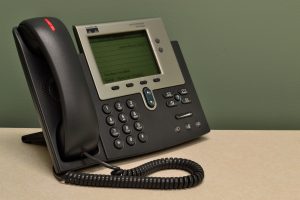National survey confirms widespread Covid 19 concerns in contact centres
Telecoms & Financial Services, Health & Safety April 20 2020 Close proximity working, worries about cleaning/ sanitisation regimes – especially in hotdesking situations – and a widespread puzzlement over ‘key worker’ designations being applied to clearly non-essential workstreams have all emerged as headline findings of a major national survey of contact centre workers.
Close proximity working, worries about cleaning/ sanitisation regimes – especially in hotdesking situations – and a widespread puzzlement over ‘key worker’ designations being applied to clearly non-essential workstreams have all emerged as headline findings of a major national survey of contact centre workers.
Just over a week after the online survey was emailed out to thousands working in call centres the length and breadth of the UK by a number of unions, including the CWU, the preliminary findings have confirmed a massive discrepancy between the best and worst responses by employers to the risk of such workplaces becoming a hotbed for the spread of the coronavirus pandemic.
Led by world-renowned contact centre expert, Professor Phil Taylor of Strathclyde University, working in conjunction with the Scottish TUC, the survey has so far been completed by nearly 2,100 respondents across the country – and, while more data is still coming in, the interim findings paint a worrying picture of poor and even reckless practice in many areas – juxtaposed by exemplary responses by some employers.
Professor Taylor, who has previously worked with the CWU on the issue of performance management in the contact centre environment, explains: “This survey lifts the lid on the nightmare being endured by many agents, with insufficient social distancing, multi-occupation workstations, overcrowded lifts, poor sanitation, re-used headsets, heating and ventilation systems spreading germs.
“Open plan office environments and face-to-face working will spread the virus, and the evidence suggests that by and large home working is being denied.
“But, alongside bad practice, there is exemplary behaviour where some employers are being highly responsive to requests for supportive homeworking and are implementing good procedure.
“We need a levelling up of practice, and we need it urgently. The more workers who complete surveys like this the more we are likely to achieve that.”
The mixed bag of excellent, good, bad and downright ugly practice reflects the feedback that the CWU is receiving from its own telecoms and financial services contact centre members – with some companies leaving no stone unturned to allay employee concerns and minimise the risk of Covid 19 transmission, right the way through to others which have shown scant regard for employee welfare to date.
Deputy general secretary Andy Kerr explains: “The spectrum of company responses we are seeing is a broad one, and there is a great deal of middle ground in which generally commendable approaches in some parts of organisations are counterbalanced by sticking points in others that the CWU is working hard to try to address.
“What I would say, however, is that, by and large, where the CWU has had a long history of effective collective bargaining, the situation tends to be better than in those areas where we have only small pockets of recognition, or no recognition at all for collective bargaining purposes.
“It’s also fair to say that, as general a rule of thumb, the significant numbers of our members who’ve been TUPE transferred into outsourcing companies by our biggest employers over the years are yet again faring less well than their erstwhile colleagues..”
Given that the respondents to the University of Strathclyde/ STUC survey come from many unions, the statistics quoted in the study’s interim findings do not necessarily correlate with the situation faced by CWU members, but the figures are nonetheless telling:
- Social distancing and personal contact: Only a third of respondents reported that their employer was successfully implementing social distancing. Disturbingly, almost half reported sitting face-to-face, 38% have face-to-face team meetings, 36% daily huddles. Almost two thirds (64%) believed that proximity with colleagues on the floor was ‘hazardous’ or ‘very hazardous – with seven in ten saying the same about using the toilets.
- Cleanliness and sanitisation: Only 4% reported having been provided with any form of PPE, including hand sanitizer. Almost two thirds (64%) regarded the cleanliness and sanitisation of their workstation as ‘hazardous’ or ‘very hazardous’, and one-in-two felt similarly about their headsets and phones. Hotdesking and multiple workstation use was identified by respondents as a particular problem area, with 70% saying they believed their workstation was ‘very hazardous’ because it was also used by others.
- Having to attend the office: Four in five reported they were still required to attend the office, saying the message to attend mostly delivered in person by supervisors or by email. The dominant message is often accompanied by the widely used BAU (Business As Usual) acronym. Respondents overwhelmingly reported feeling compelled to attend. More than eight in ten felt ‘pressurised into coming to work’ with worry about losing money (79%),fears for their attendance record (71.5%) and worries about their performance appraisal (80.3%) being major drivers.
- Working from home: Most workers reported being desperate to get out of the office and work from home. 64% of respondents who were still office-based at the time of completing the survey said they had positively requested homeworking – the outcome being 26% refused, 70.4% awaiting a decision and a mere 4% having had their request agreed. Many reported delays in rolling out homeworking causing them genuine anxiety – with 71% saying they believed that such delays were causing either ‘some’ or ‘a great deal’ of risk.
Those already working from home had mixed views about the speed and the effectiveness of the transition. 44.3% of homeworkers said they believed their companies had made the necessary arrangements ‘quickly’ or ‘very quickly’ – with almost the same percentage (43%) saying they believed their company had been ‘slow’ or ‘very slow’.
Arguable, however, the most damning finding of all, in a survey which pulls no punches, involves a widespread perception amongst contact centre workers that the ‘key’ or ‘essential’ worker designation of their role – which is being used as a justification to require them to continue attending potentially high Covid 19 risk workplaces – is often being misapplied.
Just over 57% of respondents reported having been positively told they had to continue to attend work on account of this sometimes ambiguous designation (with a further 13.5% saying they were ‘not sure’) – yet more than two thirds of all those surveyed said they did not believe their ‘essential/ emergency/ key worker’ designation was appropriate for the work they actually do.
 Professor Taylor concludes: “Many articulated their thoughts on how ludicrous it was that they might be considered to be on the front line of the battle against Covid 19,” hardly surprising given that functions still being carried out in contact centres the country over include “sales, mortgage offers, credit card queries, PPI, cross-selling and preparing and posting mail.”
Professor Taylor concludes: “Many articulated their thoughts on how ludicrous it was that they might be considered to be on the front line of the battle against Covid 19,” hardly surprising given that functions still being carried out in contact centres the country over include “sales, mortgage offers, credit card queries, PPI, cross-selling and preparing and posting mail.”
Any CWU members in call handling or related roles wishing to add their voice to the nearly 2,100 responses that have already been received can take part in the online survey HERE

